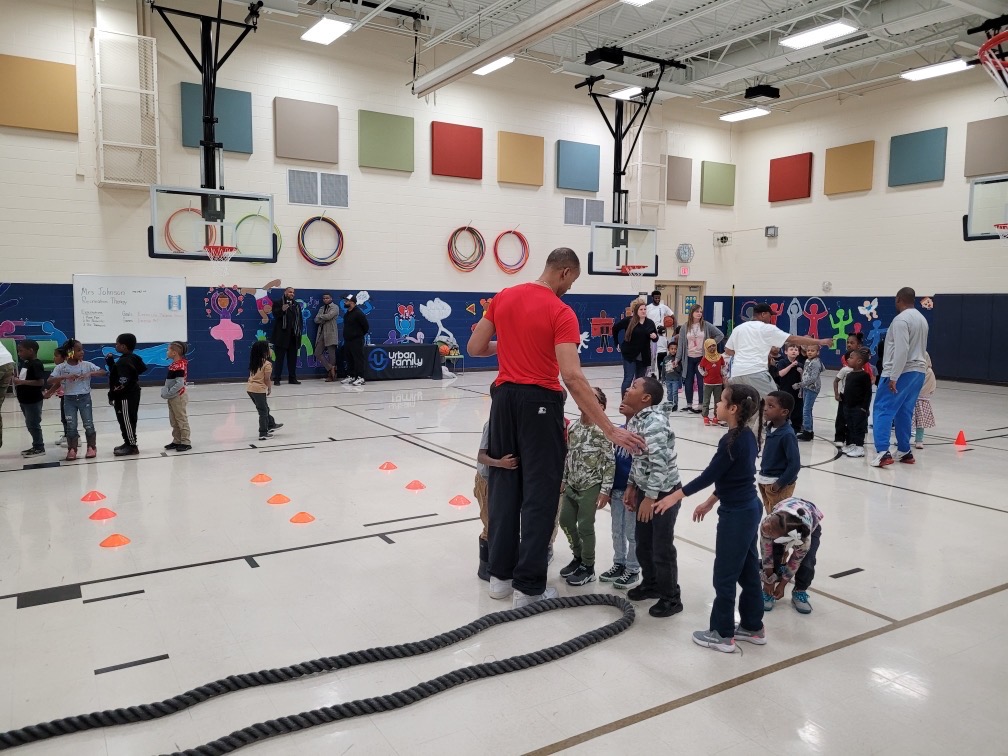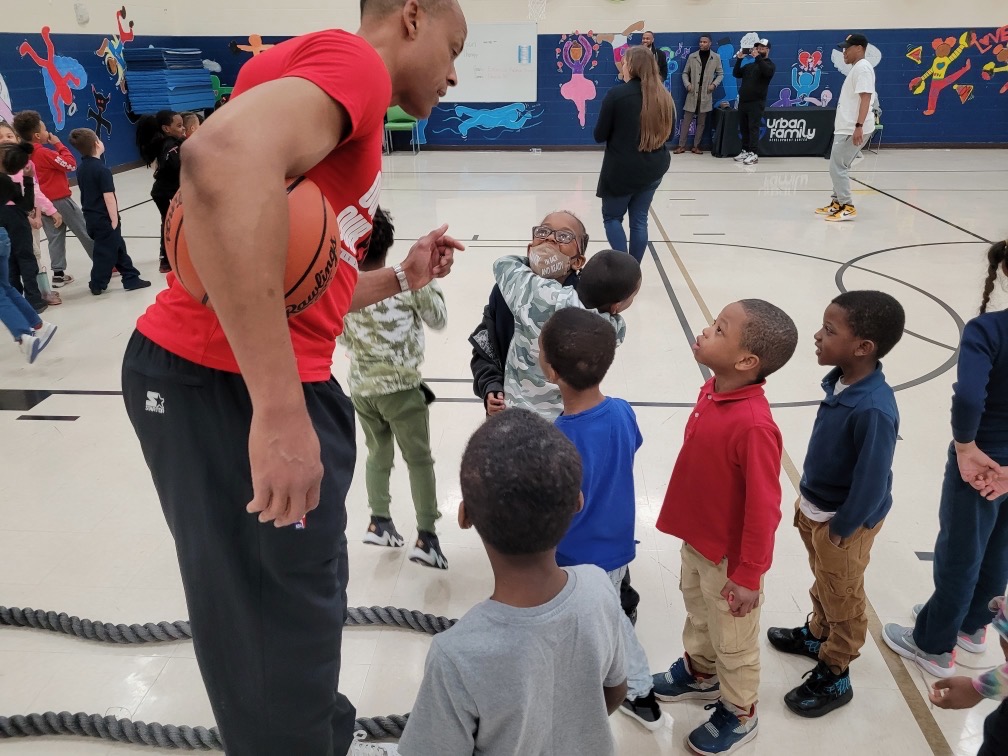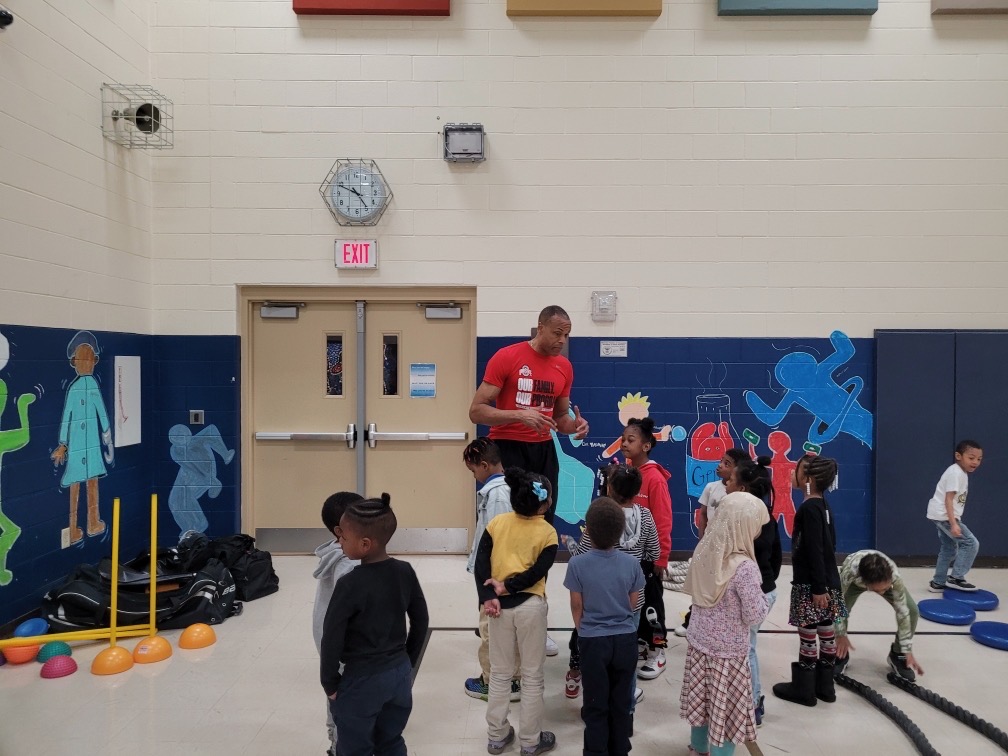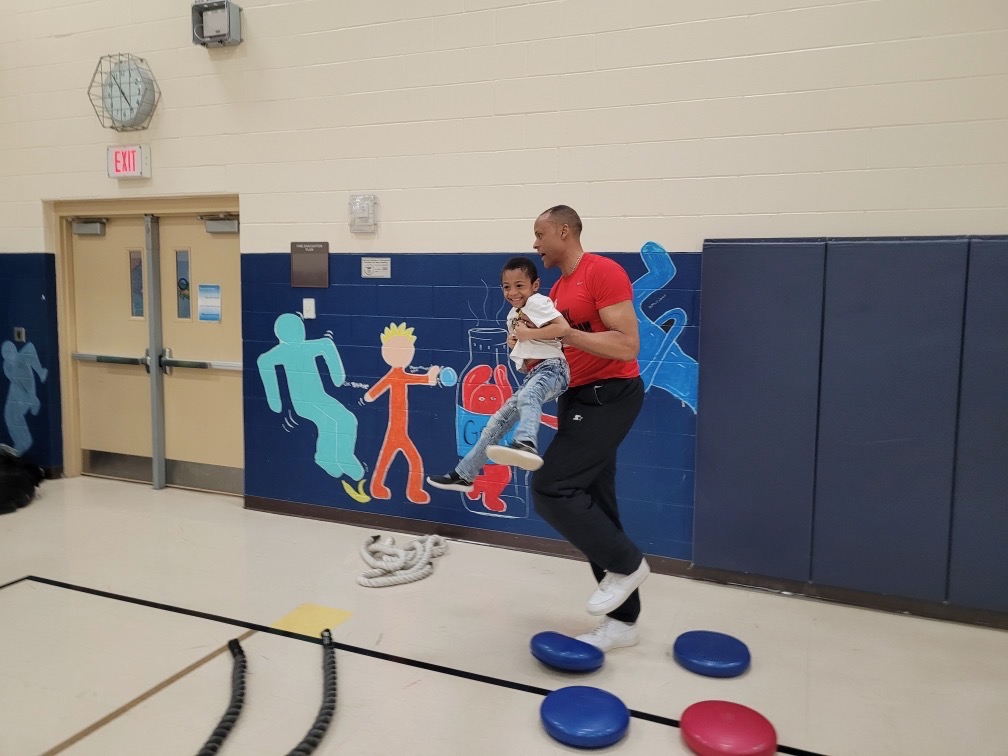March Madness Basketball Clinic at Trevitt Elementary School
Highlight Video and Article
A Different Take On
MARCH MADNESS
It’s that time of the year again. Men’s (and women’s) college basketball takes center stage. The excitement in the air is palpable. Which team will win the 2023 NCAA Championship? How will that team move on from one round to the next? Who did you select to win it all? I’m sure your bracket is busted, just like mine, just like Charles Barkley’s, just like any other noteworthy TV commentator’s “inside picks.” Purdue, Kansas, Duke, Kentucky, and Arizona are out. Princeton and Florida Atlantic University are still in as the Sweet Sixteen gets underway. Let’s pivot to a serious topic. What about the success game that our most vulnerable students in the inner city don’t feel skilled enough to play, let alone win? In effect, they often see favorable life outcomes as a zero sums game. To succeed, someone has to fail. The following win-lose, life-outcome bracket serves as a painful reminder:
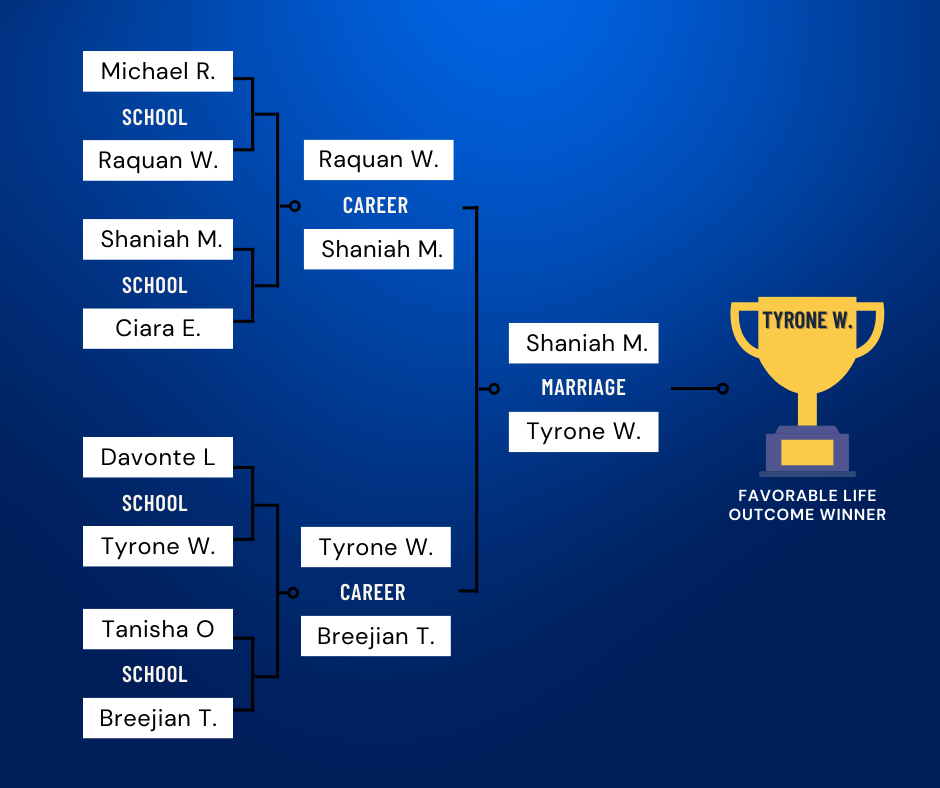
Yes, this illustration is a bit controversial given the names at play, the stakes on the line, and the point I want you to see. Our most disenfranchised students don’t picture themselves winning the favorable life outcome game. Unfortunately, many of them believe this game is rigged or stacked against them from the start. And this is true: With little room for error, so much has to go right for them to have a legitimate chance at knocking down the success shot in a given area. Think about what this means. In the classroom. On the home front. Out in the community. These kids have to contend with the stressors of overcoming learning difficulties and behavior challenges at school, wondering where and when and what their next meal will entail, and of course, worrying about being a victim of senseless violence without rhyme or reason. Bullets are not random, even if they’re intended for someone else. Now imagine if your child(ren) had to grow up ducking for cover — on a daily basis — in an inner-city war zone.
In partnership with the Urban Family Development Center, LFYO presented a free basketball clinic on March 15 during school hours at Trevitt Elementary School, located in one of the most crime-ridden areas here in Central Ohio. I invited the head basketball coach at Hartley High School, Andreas James, as well as Dwayne Bodrick to assist us. We covered the foundational basics of basketball, including passing, shooting, and dribbling. Footwork, agility, and core strengthening were also highlighted to help the kids synchronize their brains and bodies, which incidentally, translate into better students in the classroom. Sensory integration is a critical component of athletic and academic development. Without it, we would have shortchanged the kids’ basketball experience that day. You see, if our most vulnerable kids have poor body awareness (among other physical or cognitive challenges), they’re going to slouch in their chairs. This places a strain on their ability to concentrate as the body’s oxygen flow becomes compromised. And students who aren’t paying attention in class will often struggle staying engaged academically. Physical education should be prioritized to the same degree as intellectual stimulation. Active kids tend to produce motivated students.
Now, what really broke my heart was this: the self-deprecating comments vulnerable students blurted out often aligned with how they view their future prospects. What’s typically out of sight is usually out of mind. Think about the repercussions of this trite expression for a moment. At my agility station, a lot of kids were quick to point out that they were “too dumb,” “very stupid,” or “always mess up.” Notice how their adverbs acted as supercharged negativity catalysts. They also needed continual encouragement to keep going, especially when mistakes were made. Far too many of them wanted to start over as they neared the end of the completion line. Of course, I didn’t allow them to wallow in self-pity for several reasons. First, it’s not about perfection; it’s about excellence. Growth can’t take place without try (not trial) and error. Second, obstacles in life don’t have to be failure monuments. But they can serve as monumental milestones throughout life. It’s so refreshing to see kids’ interest level ramp up when they finally “get” a new drill instead of allowing the drill to get to them. Third, no one is afforded the opportunity to start life over. This journey called Life isn’t a video game; it doesn’t come with a reset button. However, everyone should be given a second (or third or fourth) chance in life when they make a mistake. This, my friends, is the beauty of our existence. And what was so beautiful to behold after the basketball clinic ended really touched my dad-glad heart. Fathers played a five-on-five game against their child(ren). With more than 70 percent of African-American children being reared in fatherless homes, this moment was a really big deal. To the kids. To the school. To me.
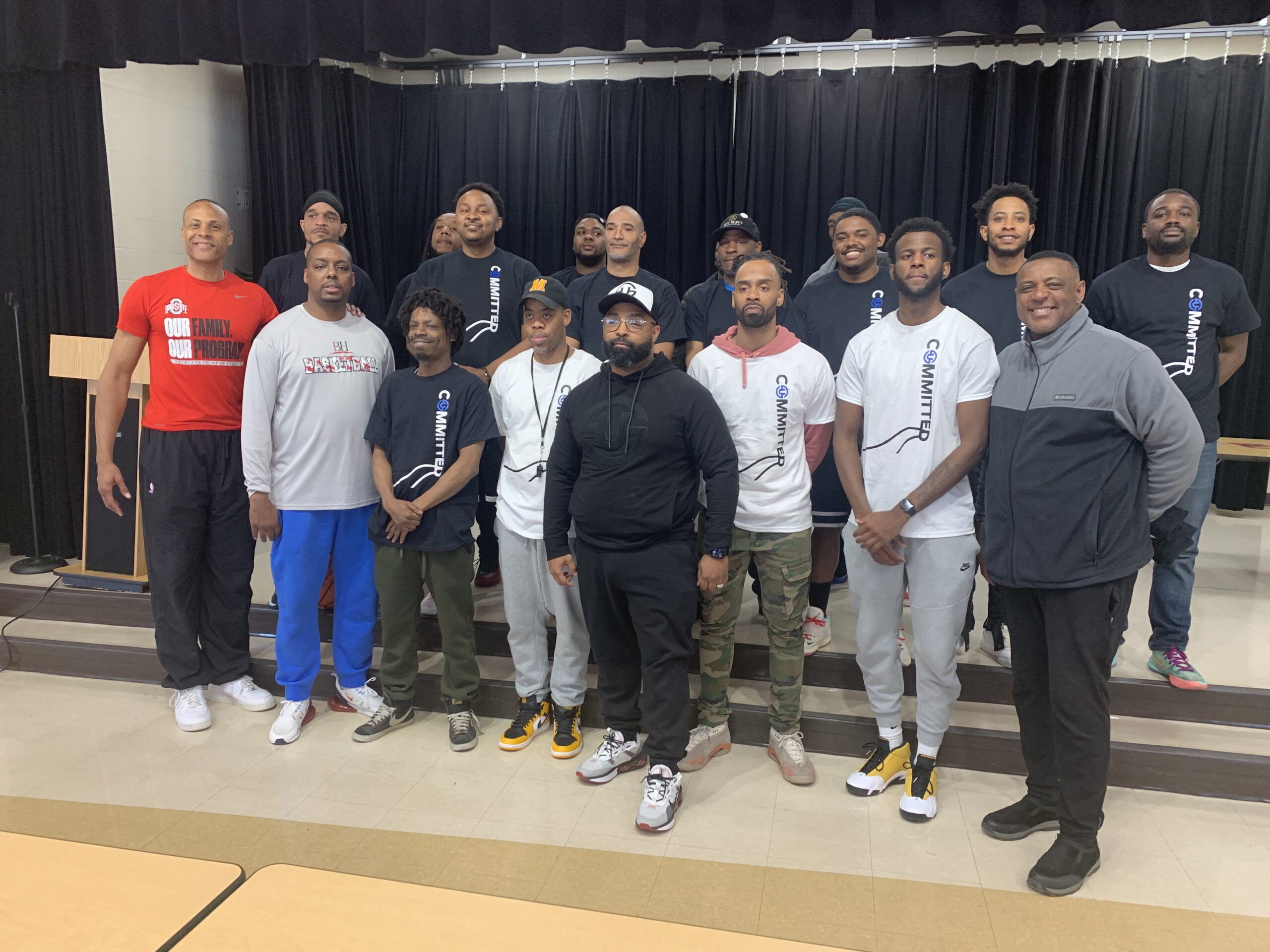
In closing, I want to give a special shout-out to Dwayne Bodrick. He’s been married for over 30 years, extremely successful professionally, and the proud papa of two adult sons. He loves basketball and more importantly, he has been a reliable and relatable volunteer for LFYO. Disadvantaged youth and young adults gravitate to his timeless wisdom and tireless work ethic. Bodrick always brings the energy, effort, and enthusiasm. He points out, “At-risk kids can control these three success ‘E’ factors, independent of their current life situation.” Great help is often hard to come by in the nonprofit sector, especially when the return on time invested (ROTI) for both participants and volunteers might be years down the road. Lastly, LFYO will be presenting a yearlong brain-body-belly wellness program for staff, students, and stabilizers (aka parents or caregivers) at Beatty Elementary School in the fall. Beatty and Trevitt share the same building. Stay tuned for more details and take a deep, reflective breath. Your NCAA tournament bracket mishaps pale in comparison to the missed opportunities in the life-outcome bracket of vulnerable youth.


